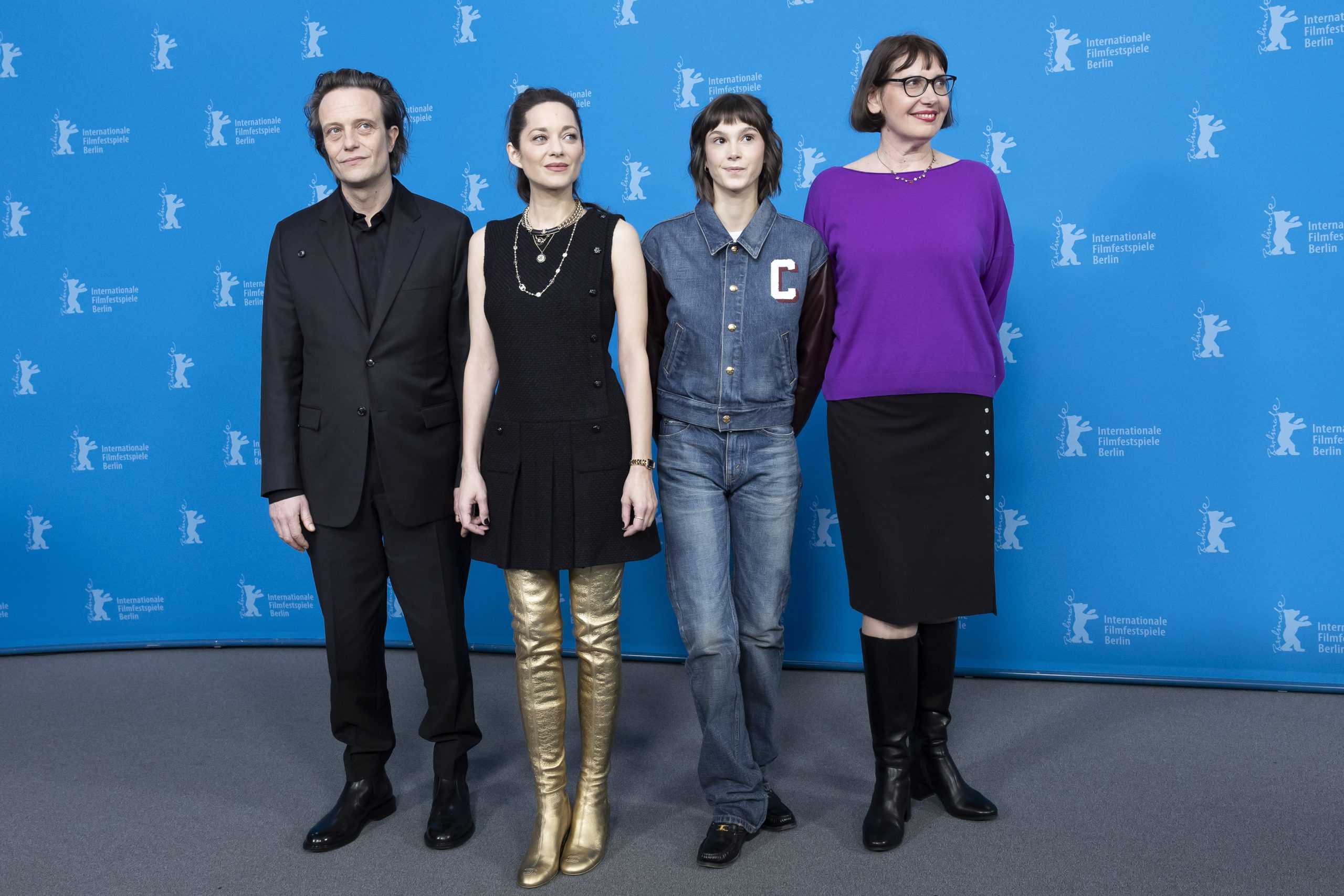
French director Lucile Hadžihalilović’s latest film The Ice Tower made its world premiere in competition at the 75th Berlin International Film Festival, bringing a mesmerising meditation on art, identity, and the blurred lines between reality and fantasy. The film stars Marion Cotillard as Cristina, an actress filming an adaptation of Hans Christian Andersen’s The Snow Queen in the 1970s, whose life becomes intertwined with a teenage runaway who finds refuge in the film studio.

During the Berlinale press conference, Hadžihalilović revealed her long-standing fascination with Andersen’s fairy tales, particularly The Snow Queen, citing their “disturbing” and “frightening” nature combined with their poetic complexity. The director made an intriguing creative choice in adapting the fairy tale’s famous mirror motif, replacing it with the camera lens – a decision that Marion Cotillard praised as “highly intelligent” and relevant to contemporary society.
Cotillard, who previously collaborated with Hadžihalilović in Innocence (2004), delivers what critics are calling a captivating performance as Cristina. At the press conference, she discussed the complexity of playing an actress within a film, describing how she created an elaborate backstory for her character that included “rivalries, love stories, failures, and flops.” The role required her to portray someone “falling, tumbling down and trying to catch herself,” reflecting the film’s themes of identity and self-image.
She continued: “Playing an actor within films is particularly fascinating. There was something very familiar about playing this role, but at the same time, I repeatedly played various mysterious figures and so I want to keep that mystery for myself as well. I don’t want to find out everything. I want to be surprised by certain reactions in the course of shooting when I play a mysterious character.”
“I let myself be carried along by what is around me, what happens on the set on that particular day, interactions with the other actors. We didn’t do rehearsals for this film.

The film marks the feature debut of Clara Pacini, who plays Jeanne, the young runaway who becomes fascinated with Cristina. The dynamic between their characters is described as complex and multifaceted, with themes of fascination and power dynamics woven throughout their relationship. Speaking of working with Clara, Marion revealed that she was “quite intimidated” when she met Clara. “She’s very charismatic and the relationship between our two figures is so very specific. There’s this fascination between the two and an attempt at domination as well. There’s an element of violence in there as well.”
“We met at my place and I realised I didn’t dare to look her straight in the eyes throughout the entire meeting. I really felt uncomfortable. That was really the start of our work together – it was already something that existed between the two of us.”
Visually, The Ice Tower employs rich symbolism and careful attention to colour grading and costumes to tell its story. The film’s approach to storytelling has sparked diverse reactions among viewers, with some praising its symbolic depth while others noting a desire for deeper emotional connection with the characters.

The film represents a significant French-German-Italian co-production, bringing together 3B Productions, Sutor Kolonko, and Albolina Film. Shot across locations in Paris, Yvelines, and Bolzano, The Ice Tower will be released theatrically in France by Metropolitan Filmexport on September 17, 2025, with international sales being handled by Goodfellas.

Through its layered narrative and visual storytelling, The Ice Tower continues Hadžihalilović’s exploration of themes she’s touched upon in her previous works, particularly the complex journey of growing up and the tests that lead to maturity. As the director herself noted during the press conference, her films often seek to create “universes that are a kind of consolation,” though she leaves it to viewers to interpret exactly what they’re consoling.
Editor in Chief of Ikon London Magazine, journalist, film producer and founder of The DAFTA Film Awards (The DAFTAs).




